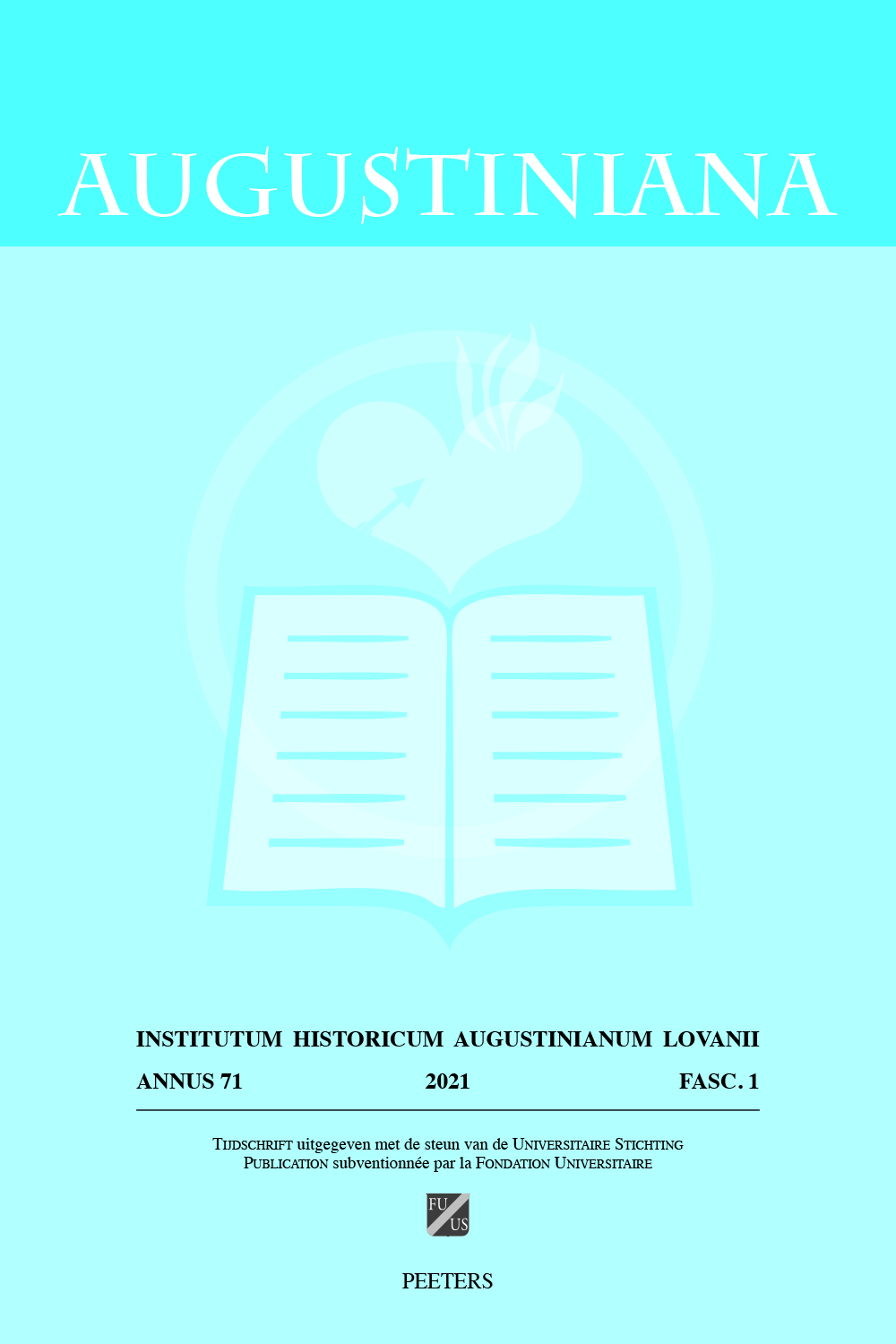next article in this issue  |

Preview first page |
Document Details : Title: On the causa scribendi of Augustine's Contra academicos Author(s): TASHCHIAN, Andrey A. , KRAPENITSKIY, Alexander A. Journal: Augustiniana Volume: 67 Issue: 3-4 Date: 2017 Pages: 145-170 DOI: 10.2143/AUG.67.3.3275096 Abstract : Augustine’s Contra academicos was meant to be an introduction to a system of science crowned with philosophy (which was conceived but never realized). Since the accomplishment of this program rested on the solution of the skeptical question of validity of knowledge, Augustine had to be concerned with the Academics’ arguments. Although such a reading suggests itself, the matter is complicated by the paradoxical character of Augustine’s relation to Academic Skepticism, apparent if one compares the suggested purpose with the ambiguous commentaries in the end of his dialogue and in his other later texts. This dissonance ignored in the traditional approach, which is usually referred to as theoretical (or epistemological), and the multilayer structure of the work give ground for doubting whether a philosophical refutation of Skepticism was its true causa scribendi. The critics of the ‘received interpretation’ contrariwise hold that Augustine’s Contra academicos had only practical ends in view and that Augustine’s intention of overcoming Skepticism remained within the limits of a moral claim. In the article, however, it is argued that the cause of writing this work should not be sought in either of the particular aspects but in the totality of Augustine’s philosophical logic, that is, in the universality of his methodology penetrating both theory and practice. The concreteness of his logic enables Augustine not only to achieve an immanent refutation of the Academics but also to reconcile them with the Platonic tradition, which removes the contradiction in his own commentaries in their regard. |
 |


